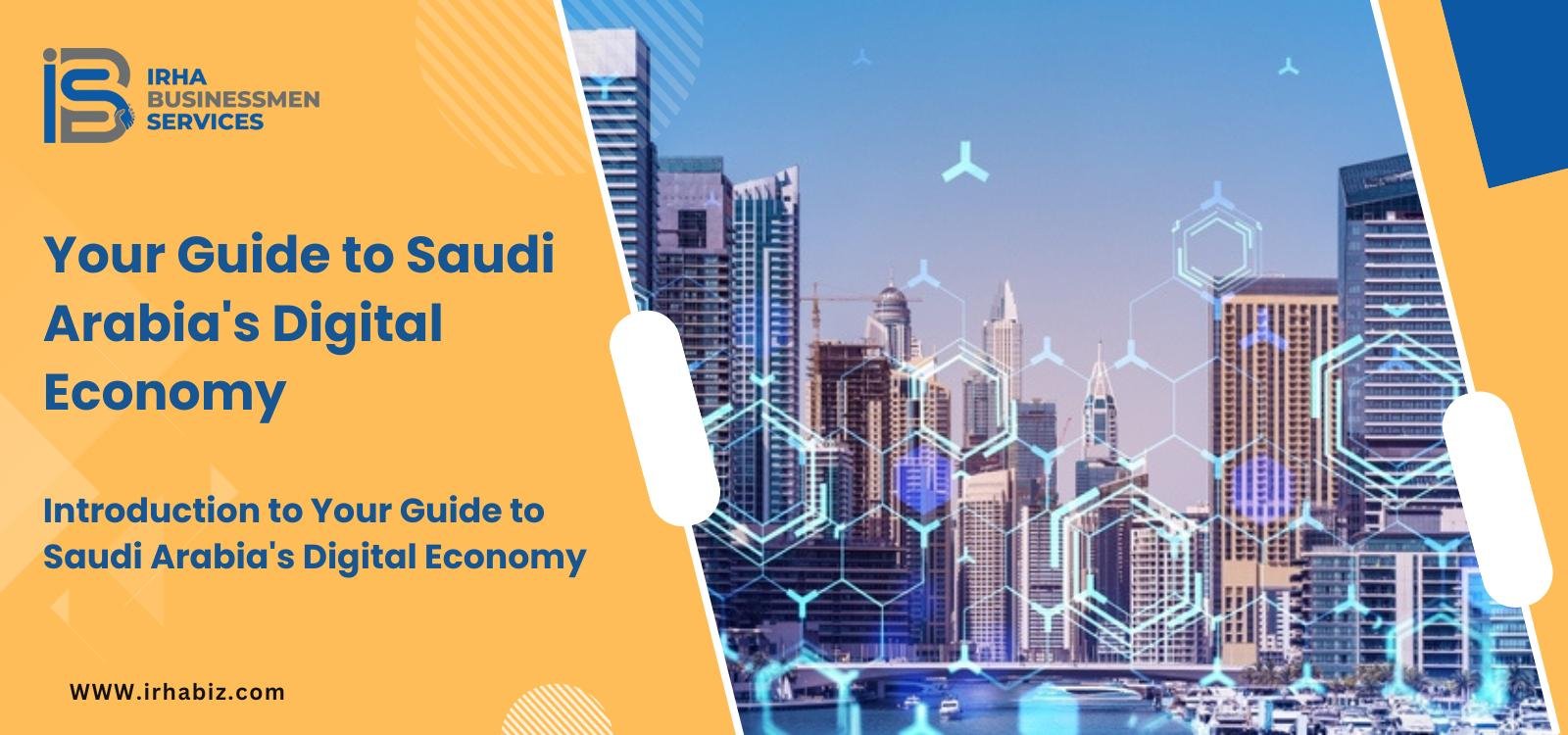
Your Guide to Saudi Arabia's Digital Economy
Introduction to Your Guide to Saudi Arabia's Digital Economy
Vision 2030 and Digital Transformation
Saudi Arabia’s Vision 2030 is a plan to reduce its reliance on oil, diversify the economy, and improve public services like health, education, infrastructure, recreation, and tourism. One of the primary components of Vision 2030 is digital economic transformation. The government has started several initiatives, including the National Transformation Program (NTP) and the Saudi Data and Artificial Intelligence Authority (SDAIA), to create a tech-driven environment. These measures are intended to encourage innovation and sustain long-term growth.
The Role of Vision 2030
Vision 2030 is the cornerstone of Saudi Arabia’s economic reform. It emphasizes the need to establish a strong digital infrastructure to assist economic development. Key initiatives under Vision 2030 include:
Digital Government Authority (DGA): Established to oversee the digital transformation of governmental services.
Saudi Payments (Mada): Aimed at promoting cashless transactions and enhancing the payment ecosystem.
National Cybersecurity Authority (NCA): Ensures the protection of the digital infrastructure and data.
National Transformation Program (NTP)
The NTP focuses on developing the necessary infrastructure and regulatory framework to support the digital economy. It includes investments in the internet, 5G networks, and smart city projects. The NTP additionally supports digital literacy and skill development to better equip the workforce for the digital future.
Key Sectors in Saudi Arabia's Digital Economy
Several areas are driving Saudi Arabia’s digital development. These include e-commerce, financial technology, healthcare, education, and entertainment. Each sector is experiencing significant growth and innovation driven by digital technologies.
E-commerce Boom
Major E-commerce Players
Noon: A standout e-commerce site in the Middle East.
Souq: Acquired by Amazon, it’s one of the largest online marketplaces in the region.
Jarir Bookstore: Transitioned from a physical bookstore to a major online retailer.
Government Support
Through a number of programs, such as the E-Commerce Council and laws designed to safeguard consumers and promote investment, the government promotes the e-commerce industry.
Key Fintech Initiatives
Saudi Fintech: An initiative to support the development of the fintech ecosystem.
Mada: Enhances electronic payment services and supports fintech growth.
Sandbox Regulations: Provides a controlled environment for financial entrepreneurs to test their solutions.
Digital Healthcare Transformation
Key Initiatives in Healthcare
Seha Virtual Hospital: Provides remote consultations and telemedicine services.
Mawid: An app for booking medical appointments.
NPHIES: A comprehensive health data integration will facilitate proactive healthcare management, benefiting communities across the nation.
Education and EdTech
The education sector is also embracing digital transformation. To improve education standards and guarantee that all students can access them, the Saudi government is making investments in digital learning platforms and technologies.
Key EdTech Initiatives
Madrasati: A digital learning platform launched during the COVID-19 pandemic.
Tatweer: Focused on creating engaging digital content and helpful educational resources.
FutureX: An initiative to integrate AI and advanced technologies into education.
Starting an Online Business in Saudi Arabia
1. Market Research and Business Plan
2. Legal Requirements
Make sure you understand and meet all the legal steps to start a business in Saudi Arabia. This includes registering with the Ministry of Commerce and Investment, getting the necessary licenses, and following local rules.
3. Set Up a Website
Build a great-looking website to act as your online store. Choose a trustworthy hosting provider and make sure your website works well on mobile devices and is easy to find on search engines.
4. Payment Gateway Integration
Add a secure payment gateway to make online payments easy and safe for your customers. Popular options in Saudi Arabia include Mada, PayTabs, and HyperPay. Ensure your gateway accepts various payment methods and currencies.
5. Marketing and Branding
Create a smart marketing plan to promote your online business. Use digital tools like social media, email marketing, and SEO to connect with your target customers. Build a unique brand that stands out and keeps customers coming back.
6. Logistics and Supply Chain
Set up a strong logistics and supply chain system to ensure quick delivery of your products. Work with trusted courier services and use good inventory management to keep everything running smoothly.
7. Customer Service
Provide excellent customer service to earn trust and loyalty. Offer support through live chat, email, and phone, and have a clear return and refund policy to keep your customers happy.
8. Legal Compliance
Conclusion
Saudi Arabia’s digital economy is on a transformative journey, driven by Vision 2030 and supported by significant investments in technology and innovation. From e-commerce and fintech to healthcare and education, the digital landscape is evolving rapidly, creating new opportunities for businesses and individuals alike. As the country continues to embrace digital transformation, it is poised to become a leading player in the global digital economy.
